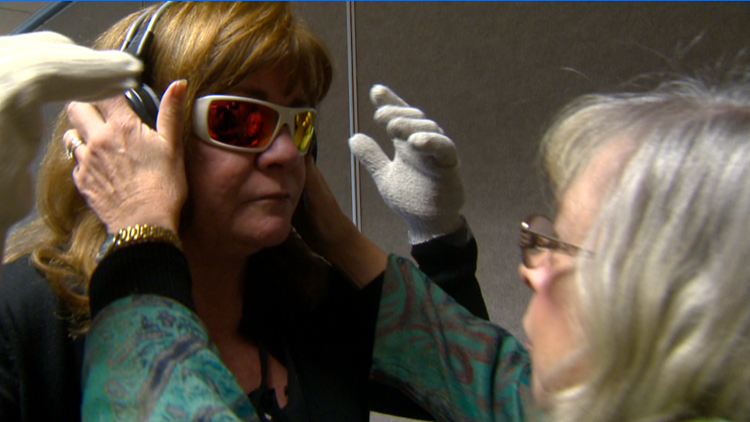KUSA — Researchers at the University of Chicago are joining a chorus of clinicians who say that "olfaction" may be the "canary in the coal mine of human health."
Your sight and your hearing seem to get most of the attention in the medical field, but the often overlooked sense of smell is now the target of rapidly growing interest among scientist and researchers.
This is especially true for doctors and researchers who are looking into Alzheimer's and Parkinson's disease. They've discovered that an inability to smell common, everyday substances, is a near-certain sign of both diseases.
ALZHEIMER'S COVERAGE | 71,000 Coloradans are living with Alzheimer's | Resources, research and their stories
Dr. Jonathan Woodcock, a Neurologist and researcher at CU Anschutz has been looking into the connection for years now. He says he has been studying past patients and current patients, often administering a simple smell test to those he suspects or knows to be compromised. Dr. Woodcock says they ask Alzheimer candidates to smell coffee, cloves and cumin.
"We found there was an extraordinarily high correlation between people who could not identify those odors and those who had Alzheimer's disease," Woodcock says. "Very few people who had Alzheimer's disease were able to identify those odors."
Similar tests were conducted at Columbia University using coffee, chocolate, cinnamon and licorice.
The result were the same. Few candidates with Alzheimer's could smell these ordinary products.
Woodcock says it is now believed that impaired smell is, in fact, one of the earliest and most common symptoms of both Alzheimer's and Parkinson's. Researchers are hoping a better understanding of that connection will lead to improved diagnoses and help unlock some of the secrets of these incurable conditions.
"That ability to smell, that system, is actually part of the brain. Its what we call a cranial nerve. The nerve cells that are stimulated by odor are directly connected to the brain. So the smell test is highly predictive."
The olfactory system, Woodcock says, is comprised of some of the most complex anatomies in the human body. It's made up of six to ten million receptor cells, of which there are nearly 400 types, and it links to multiple brain structures and neural pathways, including those involved in both memory and emotion.
Initially, many neurologists believed the smell test was unreliable. But thanks to consistent results from researchers in the U.S. and Europe, most professionals now believe they have found an unlikely clue in the fight against these devastating disorders.



